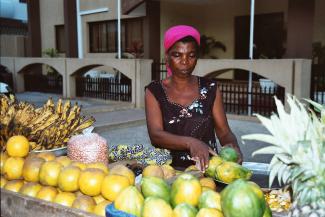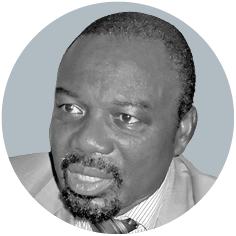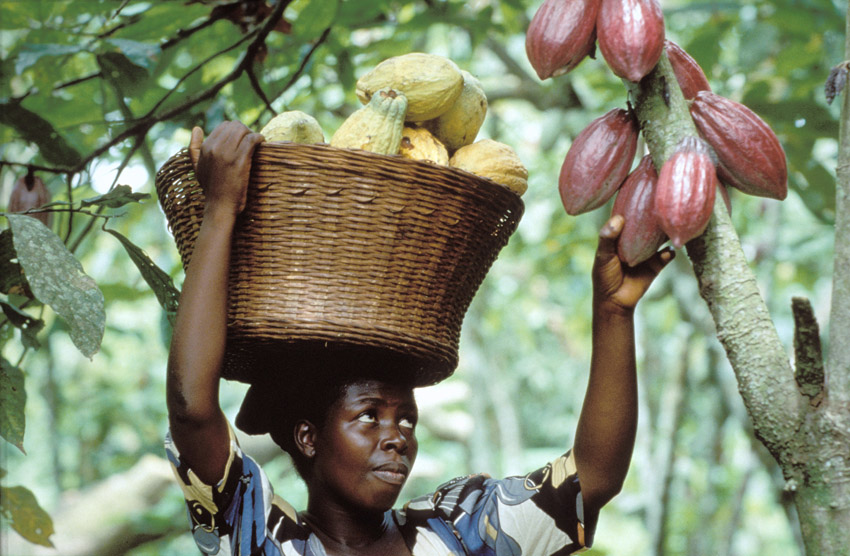Interview
“It’s a game”

Ghana’s GDP per head has grown more than threefold in the past two decades and the country is now a middle-income country. Ghana has seen free elections, with power shifting from one party to another peacefully. So your country must be successful?
Yes, it is successful if you compare it with many of our African neighbours, and yes, many people are better off today. However, to be really successful, it is not enough to perform better than others. It is essential to sustain success, and I doubt Ghana can do so.
What is the problem?
There are several challenges. The great political issue is that the institutions of the Ghanaian state are not independent enough. Their leaders are basically appointed by the president and accept his dominant role. Everything is being politicised, and corruption and clientelism are prevalent. Even crime has political dimensions today. To strengthen our democracy, we need a system of checks and balances, and the lack of such a system has an impact on the economy. Too many businesses depend on the state, so cronyism is thwarting real competition in the market, which in turn means the private sector is not as efficient as it should be. Moreover, the gap between the rich and poor is growing. The level of poverty, unemployment and underemployment is bad. So even though things have been going well in the past two decades, I don’t think Ghana could weather a serious crisis.
Why did Ghana prosper in recent years?
Well, the world-market context was favourable. Commodity prices were high, and the Ghanaian economy benefitted from exporting gold, cocoa, pineapples et cetera. Recently, however, commodity prices have begun to drop, and that is not a good sign. We need more ingenious economic policies now.
Was official development assistance (ODA), as provided by the EU for instance, helpful?
Yes, it definitely was. It translated into capacity development, infrastructure development and more public spending. Many different institutions were supported, from our Parliament to the Election Commission and various think tanks. EU funds have helped our economy to grow, and so did money from individual donor countries or multilateral agencies. But there still is room for improvement. Our electric power supply is not reliable for instance.
You say that public institutions are not as strong and independent as they should be. Institution building, however, is something the EU emphasises.
Yes, funds have been flowing into government agencies such as the police or the judicial system. But it is not enough to hire staff, train them and put them into office buildings. The big challenge is that they must become independent of the government instead of waiting for unofficial presidential directives. Ghana lacks effective checks and balances.
One goal of budget support, which the EU, its member nations and other development partners have granted Ghana, is to modernise the state. The basic idea is that donors support a government that embarks on reforms. So that approach has not worked in the sense of building up-to-date institutions?
No, it has not worked, definitely not in the sense of fighting corruption. My impression is that things were going a bit better under former President John Kufuor. Today, the institutional system has become politicised. We see unconstitutional behaviour – and so does the EU, by the way. It recently withdrew € 130 million of budget support because of a case of corruption.
I’ve been told by European officials that the decisive issue for withholding budget support in the past two years was macroeconomics. The EU is uncomfortable with Ghana’s development on this front.
Maybe so, but that means they worry about governance. Poor macroeconomic performance and corruption are related phenomena. If a government is not clean, its budget will not be clean either, and that means worse macroeconomic performance. Specifically to Ghana, fiscal indiscipline is to blame, corruption being the main culprit.
Do the EU and its members take a coherent approach in supporting Ghana’s development or is every member government pursuing its own interest?
Their rhetoric is similar, and there is some coordination. At the same time, every government does pursue its own interests, and, over the years, our various political leaders have been doing deals with the EU but also with individual donors. It is a big game, and all players try to divide the others and rule. The donor governments want development to happen, but they also want their nations, especially private-sector companies based in their countries, to benefit from Ghana’s growth – and from the ODA money they spend. For example, the UK and the USA, which is not an EU member of course, are good friends in terms of aid policies, but the UK was disappointed when US-based General Electric got a major utility assignment recently. Obviously, African leaders will try to take advantage of competition among donors.
Another thing the EU wants to promote is regional integration in Africa. Has it done so?
Well, regional integration in Africa is a huge challenge, because there are so many inter-governmental institutions. It is like a spaghetti bowl. In West Africa, we have the Economic Community of West African States (ECOWAS). However, some of its members are also united in the West African Economic and Monetary Union, UEMOA (Union Économique et Monétaire Ouest Africaine). The francophone ECOWAS members all use UEMOA’s CFA-franc, which is tied to the Euro and was previously tied to the French franc. ECOWAS and UEMOA don’t always agree, and the EU, because of France, tends to back UEMOA in all issues at the expense of ECOWAS unity. They don’t seem to understand which organisation is the parent organisation.
London and Paris both have especially close ties to former colonies. Does some kind of post-colonial competition between Britain and France make regional integration in West Africa more difficult?
Yes, it does. Incidentally, Britain seems to have become more open-minded, but France has not.
I imagine the UEMOA members are worried about Nigeria, Africa’s giant in terms of both population and economic power, becoming too dominant. Is that fear justified?
It is not only the UEMOA membership that are worried about Nigeria; all members of ECOWAS are. The fear would not be justified, however, if ECOWAS became more committed to integration. Integration is trade-induced and requires of members to remove obstacles to trade and build institutions to ensure shared and competent governance. There are very many obstacles to trade in West Africa, including:
- barriers to all free movement of goods, people and capital,
- governments are competing with one another instead of cooperating,
- there is a lack of infrastructure, and
- member countries’ economies are geared to trade with northern nations rather than among one another.
The EU recently agreed an Economic Partnership Agreement (EPA) with ECOWAS after almost one and a half decades of negotiations. Will it boost regional integration?
No, it is actually creating new obstacles. According to the UN definition, 12 of 15 ECOWAS members are least developing countries. Since the EU allows this group of countries free market access for “everything but arms”, they really did not need an EPA. They are now involved in the EPA because of Ghana, Cote d’Ivoire and Nigeria, which are more developed and have special interests accordingly. The EPA means less economic space for development for all African partners and especially for the least-developed countries. The coming into force of the EPAs also signals, in my opinion, the death of integration among the ACP group of countries in Africa, the Caribbean and Pacific to whom the EU has ties to, including ECOWAS.
But the EPA basically grants all ECOWAS members the same status as least-developed countries and allows African partners to protect their markets to some extent for a transition period of many years. So there shouldn’t be any problems?
Well, the EPA is a very long legal document. It includes all sorts of rules. The bureaucratic burden in itself is considerable, and the entire text has not been made public. It is very hard to assess what it will mean in practice.
But will the EPA foster development in Ghana?
Personally, I do not think so. We still are primary-goods producers and cannot compete with EU manufacturers. The World Trade Organization’s Article XXIV allows for differentiation and discrimination to engender development – this is called the “three Ds”. This approach is absent from the EPA. While access to the European market is certainly valuable, I doubt, Ghana will be able to develop a strong manufacturing industry. We will neither be able to meet all standards soon, nor to compete with more-advanced European companies. There has been a lot of debate on EPA. How it will play out in real life remains to be seen.
Vladimir Antwi-Danso is a senior research fellow at the University of Ghana’s Legon Centre for International Affairs and Diplomacy (LECIAD).
vladanso@yahoo.com









